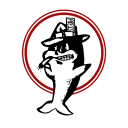Chris Gruenwald (BSF'04) grew up in the forest. Now, he gets to work in one and manage it every day.
Chris is the director of forestry for Mission Municipal Forest, a community-managed forest that was the first of its kind in Canada. Since 1958, the City of Mission, British Columbia – about an hour east of Vancouver - has managed its forest resources for the benefit of the community through a municipally held Tree Farm Licence. The area is approximately 10,900 hectares (about 26 times the size of Stanley Park) of which about 12% is municipally owned and 88% is provincial crown land and is located on the traditional, ancestral and unceded territories of the Sto:lo people.
Chris explains that "the Mission Municipal Forest exists for the people of Mission and local First Nation Communities, by providing a continually evolving balance of various economic, social and environmental forest values as well as providing memorable forest experiences to Mission residents and its visitors." He excitedly talks about the history of the Municipal Forest. "Local leaders pushed the province in the 1950s to grant the city a tree farm licence, and that turned out to be an extremely forward-looking endeavour that set the stage for community forestry, not only in B.C. but in Canada as well.'
He is also keenly aware of how forward-thinking was an early hallmark of the Municipal Forest. "In the early days, the priorities were reforestation and fire management, as the land was heavily denuded by the harvest strategies of the previous decades. The early managers of the tree farm committed to not making a profit for the first few years, as they put all revenues back into the forest. In those days, this was not a common strategy and the fact that leaders made this early sacrifice is evident in the beautiful, productive, and extremely valuable forests that surround Mission to this day."
Chris says that as values for forests have changed over time, the Mission Municipal Forest has adapted and changed with them. The 1970s started an era of research and education, while recreation started to increase in popularity in the early 1990s. Today the Mission Municipal Forest has evolved into a balanced approach of forest management that provides residents with economic returns, positive forest values and recreational opportunities ranging from hiking trails to mountain biking. "In the spirit of the progressive management of the past, we're now focused on four key priorities: reconciliation with First Nations, addressing climate change, managing community growth around the forest, and protecting and re-establishing old growth."
Born and raised in Mission, Chris travelled across the country to study in UNB's forestry program in the early 2000s. "I'd never seen the East Coast, and I really enjoyed my time there. I remember how easy it was to make new friends and was thankful for the quality of instruction. It absolutely had a big impact on my career." Back in B.C., Chris worked in a variety of forestry roles and started his own consulting company that specialized in managing forest tenures for First Nations, communities and families. He then joined the City of Mission in 2018.
You can tell Chris loves his work and is completely focused on stewarding the land and his community. "I've always been a strong proponent of Community Forestry, and the fact I now get to serve my community, in Canada's first Community Forest, is a dream come true.
Chris and his team are also extremely focussed on reconciliation with local First Nation Communities. "The historical success of the Tree Farm excluded local First Nations and this is something that needs to be addressed. I'm blessed to work with local First Nations in building long-term, meaningful, and mutually beneficial partnerships." As an example of this work, the City of Mission, in partnership with Kwantlen First Nation, Leq'á:mel First Nation, and Matsqui First Nation, has developed an Indigenous Guardians Training Program that provides students with field training in tree and plant identification, forest ecology, forest health, stream classification, archeology and cultural plant identification. Graduates work in the shared territories of the First Nations and for the City of Mission itself conducting environmental and fire patrols, cultural interpretation, archeology fieldwork, managing cultural trees and plants, and stream assessment and rehabilitation. "This initiative represents a small step in the right direction towards reconciliation, and it is recognized we have more work to do as we continue along this path with First Nations."
"I'm blessed to work with local First Nations in building long-term, meaningful, and mutually beneficial partnerships."
On the climate change and sustainability front, Mission Municipal Forest is working to ensure more forest diversity and looking at alternative silviculture systems that retain more trees within harvest blocks. It's also working on a long term plan to re-establish a minimum of 40 percent of the land base back into old forest ecosystems, and chooses not to spray its forest with herbicides, opting instead for manual brushing of harvest areas.. They've also entered into a research partnership with the University of British Columbia's forestry faculty to enable grad students to study climate change and sustainability in the Mission Municipal Forest. "The last few years we've been threatened by wildfires which covered us in a smokey haze and we've had to deal with extremely dry summer weather and heat domes. Then in the Fall of 2021, the Fraser Valley was affected by atmospheric rivers and catastrophic flooding. Climate change is happening now. We have to address it."
"Climate change is happening now. We have to address it."
One of the other things that Chris gets very excited about is the ability to invest back into the community. "We have a set amount of annual harvesting, and profits go into a forestry reserve fund. Those funds then go to community projects. Last year was an outstanding year for giving back. We were able to earmark $1 million for a new seniors' complex, purchase a new portable sawmill for the woodworking class at our local secondary school and contribute nearly $400,000 to a new CT scanner and other critical equipment for our hospital. It really means a lot to me to be able to serve the community like this."
Chris loves the challenges and opportunities that his forestry career provides, and recognizes how his time at UNB prepared him for these challenges "Forestry is such a complex discipline, and threading the needle to manage for multiple values while at the same time addressing serious, complex challenges in our forests – as well the opportunities to serve my community and local First Nations communities – that's what I love best about being a forest professional."






